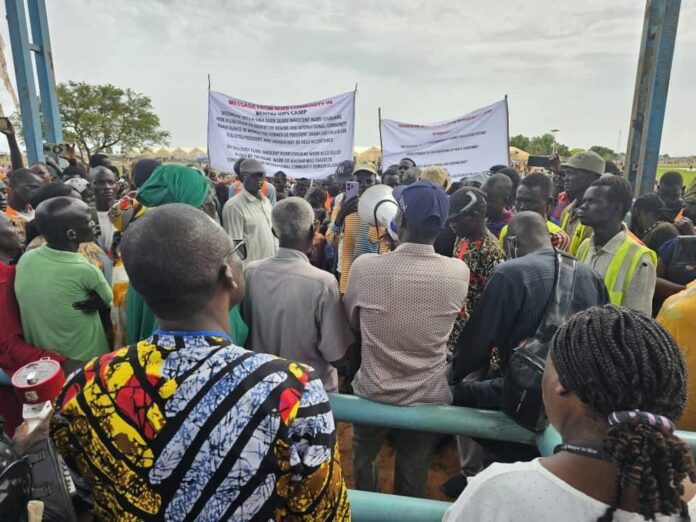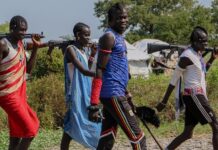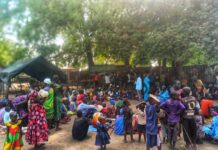The Sudan People’s Liberation Movement-In Opposition (SPLM-IO) has strongly condemned the suspension of 24 headteachers from schools operating in Bentiu’s IDP camp, calling the move politically motivated and a violation of constitutional rights.
In a statement released by Puok Both Baluang, Acting Press Secretary in the Office of First Vice President Dr. Riek Machar, the SPLM-IO described the Unity State government’s decision as an “irrational and punitive action” following a peaceful protest by IDP camp residents on September 24.
The demonstration called for justice and the release of Dr. Machar and other SPLM/A-IO members currently on trial in Juba for alleged involvement in the 2024 Nasir incident. Protesters also demanded the implementation of the 2018 peace deal, activation of the hybrid court for South Sudan, and the withdrawal of foreign troops.
According to SPLM-IO, the decision to close schools during the protest was made by the IDP camp’s Community High Committee—not the suspended headteachers. “Blaming educators is a misrepresentation aimed at suppressing dissent,” the statement read, urging the immediate reinstatement of the suspended staff.
In response, the Unity State Ministry of General Education defended the suspensions, accusing the headteachers of failing to engage in dialogue and disregarding administrative procedures. Stephen Mayiel Gatkoi, the ministry’s Director General, said the closures disrupted learning for thousands of students.
“These schools are governed under the South Sudan General Education Act, 2012. Suspending staff who defy procedure is both legal and necessary,” Gatkoi said, adding that the ministry is committed to reopening schools and conducting disciplinary reviews.
The government also criticized the involvement of schoolchildren in political protests, warning against politicizing education.
This latest incident adds to growing tensions, as SPLM-IO leaders face trial in Juba—a process the opposition has repeatedly denounced as politically driven. The group accuses the Unity State government of targeting its supporters and violating the 2018 revitalized peace agreement.
“Suppressing fundamental freedoms to settle political scores threatens the fragile peace,” Baluang concluded.





